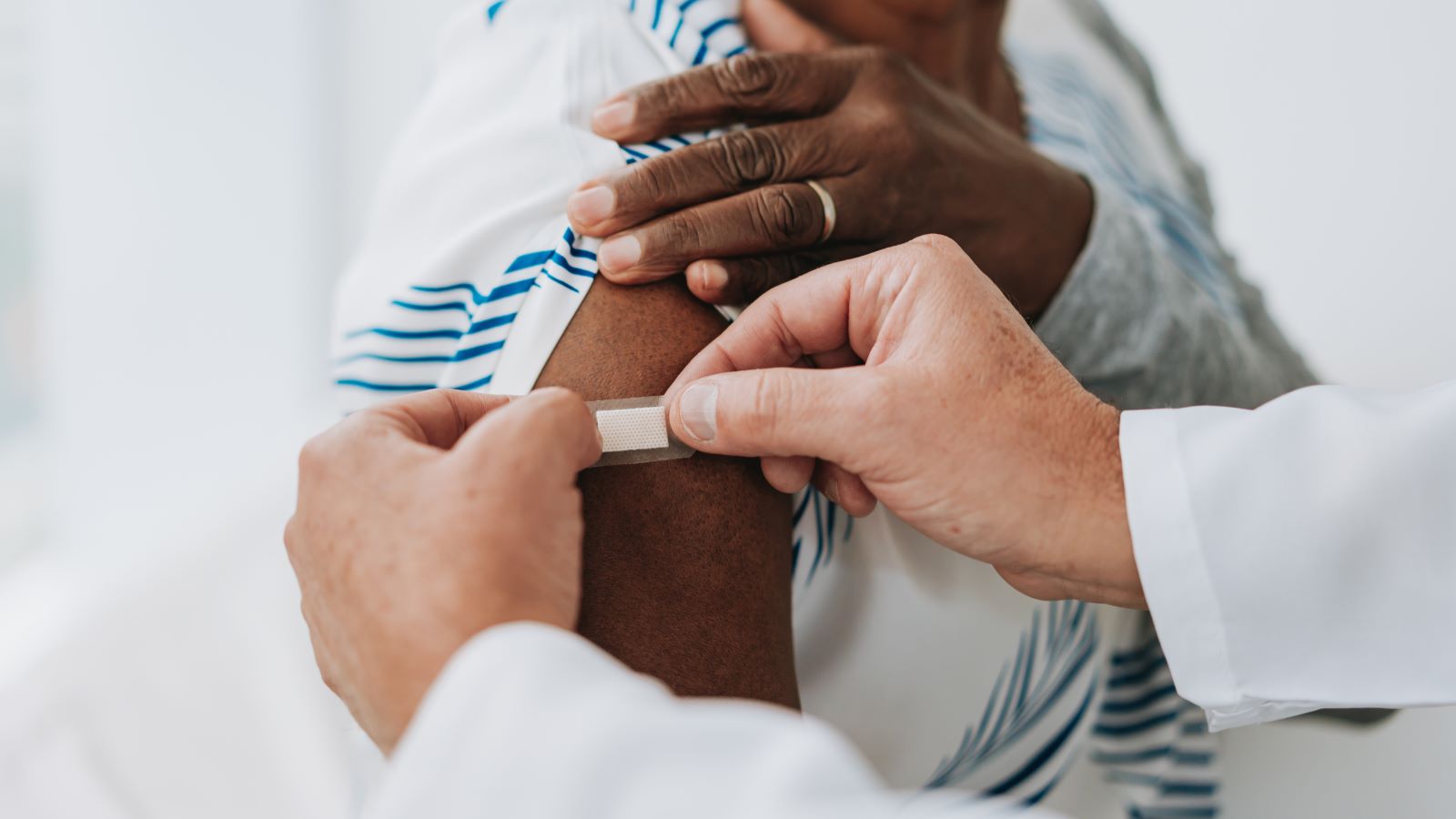<< Back
Are These 4 Myths Putting You at Risk of Shingles?

July 05, 2024
It’s no surprise that shingles is commonly associated with chicken pox. After all, they’re both caused by the same virus and present a similar rash.
But confusion about who can get shingles — and how — has left many adults at risk of contracting this painful and potentially harmful disease.
Christelle Nimba, APRN, at Hartford HealthCare Medical Group in Trumbull, dispels four common myths about shingles.
Myth #1: I can only get shingles if I’ve previously had chicken pox.
Varicella-zoster virus — which causes chicken pox and shingles — is a contagious virus and anyone can contract it, regardless of their chicken pox history.
But here’s the caveat — if you never had chicken pox, you won’t get shingles, you’ll get chicken pox instead. It’s also important to note that there’s a chance you were exposed to chicken pox, but didn’t show any symptoms, which still puts you at risk of shingles.
“Even if you’ve never had chicken pox, it’s a virus that can catch you,” says Nimba. “If you’re next to someone who has shingles with open vesicles, it increases your likelihood of getting it, especially through direct contact with the vesicles.”
Shingles will present as a rash or small bumps, usually in one specific area on the body. Within a few days, those bumps will turn into fluid-filled blisters or sacs. And when they pop open, they’re the most contagious.
> Related: 5 Health Conditions That Show Up In Your 30s
Myth #2: Shingles only affects older adults.
Shingles usually appears in adults age 50 and older, because that group tends to be more immunocompromised. However, anyone over 19 years old is susceptible.
“Shingles can get anyone,” explains Nimba. “It does not only affect older adults, but also anyone who’s had chicken pox or is immunocompromised.”
Patients at a greater risk include those with a weakened immune system due to preexisting conditions or taking long term medications. High levels of stress can also increase your chance of getting shingles.
Myth #3: Shingles can’t be prevented.
Much like the chicken pox, you can be vaccinated against shingles. There are multiple options for vaccines, but Shingrix is the preferred choice and is proven to be more than 90% effective in preventing shingles.
“The best thing for prevention is vaccination,” explains Nimba. “Just like we encourage people to get the flu and COVID-19 vaccines to prevent those viruses, the same goes for shingles. The vaccine will not completely stop you from getting shingles, but it will make your symptoms better if you do get it.”
Shingrix is administered in two doses, anywhere from two to six months apart. Once you receive both doses, no further boosters are needed.
Nimba recommends the vaccine to anyone over 50 years old, and anyone over 19 who is immunocompromised.
Myth #4: Shingles is very rare.
According to the Center for Disease Control, about 1 in 3 adults in the United States will get shingles in their lifetime. Nearly half of people reaching the age of 85 will have contracted it at some point in their life.
“Vaccinations for shingles did not start until 1980,” explains Nimba. “So anyone born before then, runs a higher risk of getting shingles.”
If you’ve had chickenpox, but haven’t had shingles, getting the vaccine can help prevent the dormant virus in your body from reactivating.
How you can stay safe from shingles.
Nimba encourages patients to add the Shringrix vaccine to their to-do list, along with the flu and pneumonia vaccine.
“You don’t want to get shingles,” warns Nimba. “It’s extremely painful and potentially harmful. If you get it in your eye, you could lose your vision. It can also cause severe nerve damage to the affected area, which is very hard to regain.”
Not sure where to go? Your primary care provider is a good first stop for a shingles vaccine and any other preventative medicine needs.